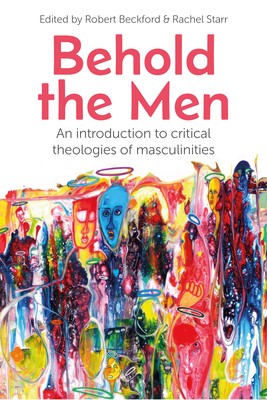
- We will send in 10–14 business days.
- Author: Robert Beckford
- Publisher: SCM Press
- ISBN-10: 0334061237
- ISBN-13: 9780334061236
- Format: 15.6 x 23.4 x 1.3 cm, minkšti viršeliai
- Language: English
- SAVE -10% with code: EXTRA
Reviews
Description
Contemporary dominant models of masculinity in Britain are often toxic, highly damaging to both men under pressure to embody them, and women who are subject to oppression, marginalization and abuse because of the gender hierarchies and assumptions such models encourage. Despite growing awareness of the negative impact of such models theologians and churches have so far failed to address critically how theological beliefs and faith practices contribute to toxic masculinity, and what they might need to do to enable the transformation of understandings and practices of masculinity. Behold the Men offers a vital introductory text for those looking to reflect on the ways in which masculinity has been imagined and informed by Christianity. Drawing together a diverse range of scholars, the chapters together ask how toxic models of masculinity might be challenged by Christian theological resources. As a whole the book seeks to offer a range of critical, transformative, healthy, faithful models of masculinity, which engage with Christian traditions.
EXTRA 10 % discount with code: EXTRA
The promotion ends in 23d.17:48:09
The discount code is valid when purchasing from 10 €. Discounts do not stack.
- Author: Robert Beckford
- Publisher: SCM Press
- ISBN-10: 0334061237
- ISBN-13: 9780334061236
- Format: 15.6 x 23.4 x 1.3 cm, minkšti viršeliai
- Language: English English
Contemporary dominant models of masculinity in Britain are often toxic, highly damaging to both men under pressure to embody them, and women who are subject to oppression, marginalization and abuse because of the gender hierarchies and assumptions such models encourage. Despite growing awareness of the negative impact of such models theologians and churches have so far failed to address critically how theological beliefs and faith practices contribute to toxic masculinity, and what they might need to do to enable the transformation of understandings and practices of masculinity. Behold the Men offers a vital introductory text for those looking to reflect on the ways in which masculinity has been imagined and informed by Christianity. Drawing together a diverse range of scholars, the chapters together ask how toxic models of masculinity might be challenged by Christian theological resources. As a whole the book seeks to offer a range of critical, transformative, healthy, faithful models of masculinity, which engage with Christian traditions.


Reviews